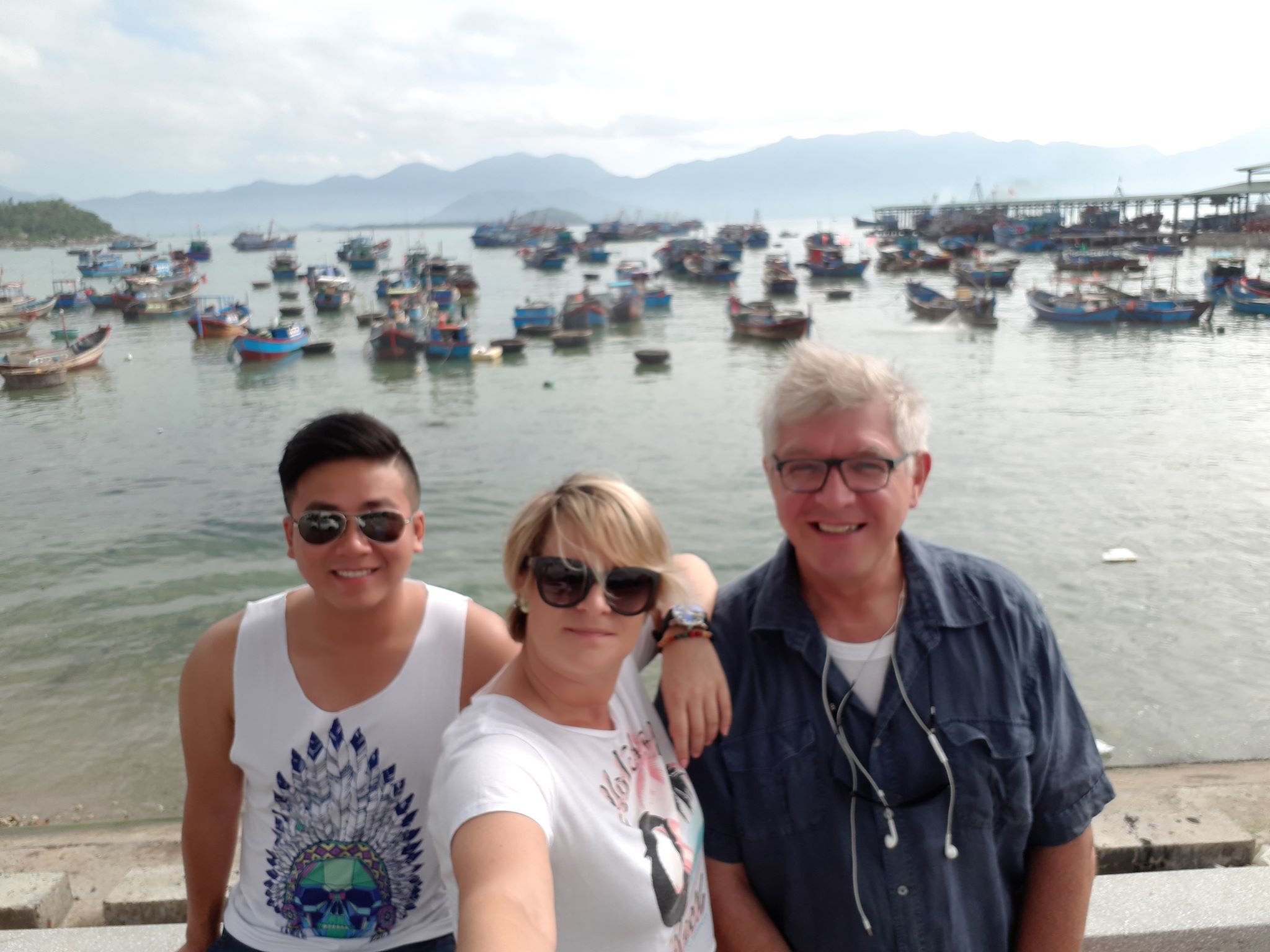SSSH: Employers Should Be Entitled to Subsidies If They Re-Employ Sacked Workers
ZAGREB, April 5, 2020 - The SSSH trade union federation suggested on Sunday that companies that had fired workers due to the corona crisis should be entitled to job retention subsidies provided that they hired the same workers on a permanent basis.
The SSSH recalls that it has recently called on employers not to panic and hastily dismiss workers, urging them to show patience, social responsibility and dialogue.
Following the latest set of measures proposed by the government to prop up businesses and save jobs, the Croatian Employers' Association (HUP) earlier on Sunday welcomed the announcement by the Labour Ministry that grants for saving jobs during the corona crisis will also be made available to companies that were forced to lay off workers before the latest set of government measures.
The HUP said on Sunday that it was pleased with the ministry's announcement that the Croatian Employment Service (HZZ) steering board would on Monday grant the HUP's request that employers who had had to dismiss workers due to the crisis, before the government designed the so-called April package of measures, would also be entitled to subsidies as envisaged in that latest set of measures.
The SSSH said today that it also supported the HUP's request for enabling employers who dismissed in a hastily manner workers at the start of the corona crisis to apply for subsidies provided that they re-employ those workers on a permanent basis.
The SSH also called for prevention of misuse of state subsidies.
More coronavirus news can be found in the Lifestyle section.
SDP Unveils 10-Measure Package to Help Citizens Worst Hit by Coronavirus
ZAGREB, April 5, 2020 - Social Democratic Party (SDP) leader Davor Bernardić on Sunday presented a 1.7-billion-kuna rescue package designed by this Opposition party to help those citizens who are hardest hit by the crisis caused by the COVID 19 epidemic.
At the start of the news conference in Zagreb, the SDP chief recalled that due to the crisis 400,000 jobs in the country are at risk, and furthermore 20,000 workers have been already fired, while 37,000 persons registered by the Croatian Employment Service (HZZ) receive the monthly dole of HRK 2,600, while more than 100,000 unemployed persons are without any social welfare allowance.
Commenting on the hardship which those citizens with blocked accounts and citizens with monthly income below the poverty threshold are experiencing, Bernardić said that the 10-measure package was intended for those out of work, social welfare recipients, pension recipients and for all "who can barely make ends meet".
Under the SDP package, 20,000 people who are now out of work due to the corona crisis would be entitled to the monthly allowance of HRK 4,000.
Those 100,000 unemployed persons who he said could not find employment due to the crisis would be entitled to the monthly allowance of HRK 1,625.
Commenting on the troubles bothering 5,500 permanent seasonal workers, Bernardić said that the SDP set of measures would provide for 3,250 kuna every month to them plus social welfare benefits to which some of them are entitled.
Bernardić said the SDP would enable 750 kuna as a supplement to each pensioner with the monthly income up to 1,939 kuna.
He said that those measures encompassed 400,000 citizens.
The SDP also proposes that pensioners with low incomes should be exempt from paying monthly TV fee.
The SDP is in favour of suspension of enforcement, the party leader said, among other things.
He reiterated that this party would insist on a year-long moratorium on repayment of loans unlike the government's proposal for a three-month-long moratorium.
More SDP news can be found in the Politics section.
Foreigners Self-Isolating in Croatia: Do You Feel Safer? Tash from New Zealand
April 5, 2020 - Do foreigners in Croatia feel more or less safe sitting out COVID-19 here than in their home country, and what are their experiences? A new series on TCN, with Tash Pericic from New Zealand in Dugi Rat as our 27th contributor.
Oxford University recently published some research on government responses to coronavirus which showed that Croatia currently has the strictest measures in the world. While inconvenient, this is a good thing in terms of reducing the spread of the virus, and I am certainly not alone in my admiration of the official Croatian handling of this crisis in recent weeks, both in terms of action and communication.
But what do other expats here think? And how does it compare with the response in their home country? Would they rather sit this one out here or there? In the first of a new series on TCN, we will be featuring expats from all over the world to see what their views are on life in corona Croatia rather than back home. So far we have heard from expats in Croatia from Romania, USA, Ireland, UK, Mexico, Argentina, Spain, Singapore, Holland, Canada, India, Hong Kong, Venezuela, Latvia, China, Honduras, Hungary, Moldova and Germany. Next up, Tash Pericic from New Zealand in Dugi Rat.
If you would like to contribute to this series, full details are below. Now, over to Tash.
Firstly, how are you? Are you alone/with someone? Tell us a little about your situation and sanity levels.
I am doing ok, I am isolated with my husband and two fur babies in Dugi Rat, just outside of Split. Our circumstance is actually very surreal because we have been working in tourism (on yachts) for years and were in the process of trying to buy our own yacht but the deal fell through. At the end of last year, we signed an agreement to work as crew for a private owner (so, not reliant on tourism). We never could have predicted this pandemic but are obviously very fortunate. At the beginning, I actually felt guilty for being ok financially but then I realised guilt helps no one. We are thankful to be in a position where we can help others and feel even more driven to do so.
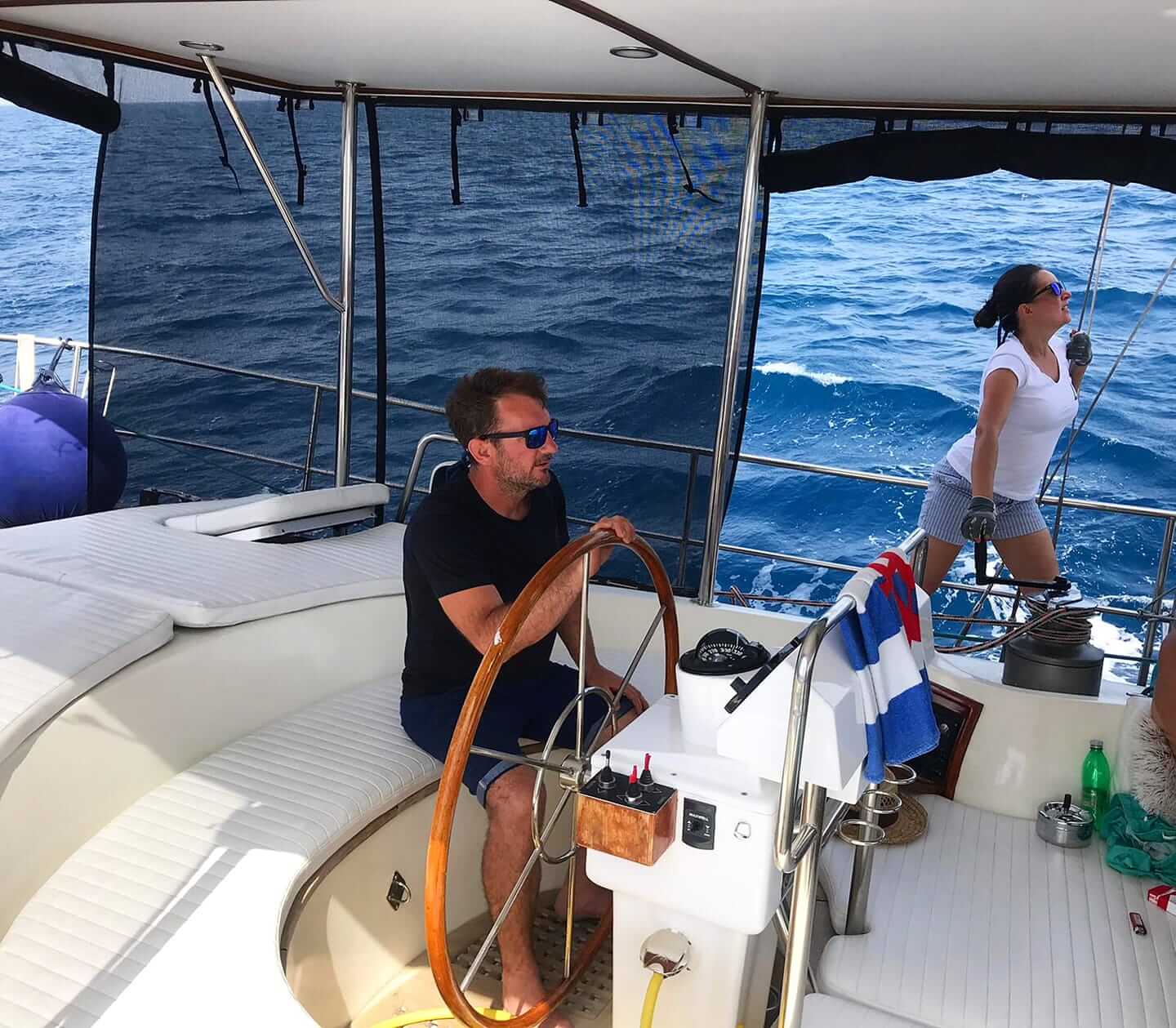
We should be sailing right now...
We have been in self-isolation for 3 weeks now and honestly, it has gone quite quickly. However, we can’t complain as our situation is different to many: we have our health, we don’t have kids, we own our apartment and our income isn’t affected (for now). I am not saying this to be a smug son of a b*tch, I am saying this to preface and explain that isolation for us, doesn’t come with most of the stresses many are facing; hence, we have the energy to try and use this time productively.
This means our sanity levels are also fine. While I am definitely a social person; we work seasonally, so every winter we typically ‘self-isolate’ for a period and are used to finding ways to keep ourselves occupied. Luckily, we have a small radionica (workshop) in our basement to keep my husband busy – building furniture is his side passion. For myself, I have my writing (I recently penned an article about hope in these times) and have just started Croatian lessons via Skype; so, this is more than enough to occupy my time.
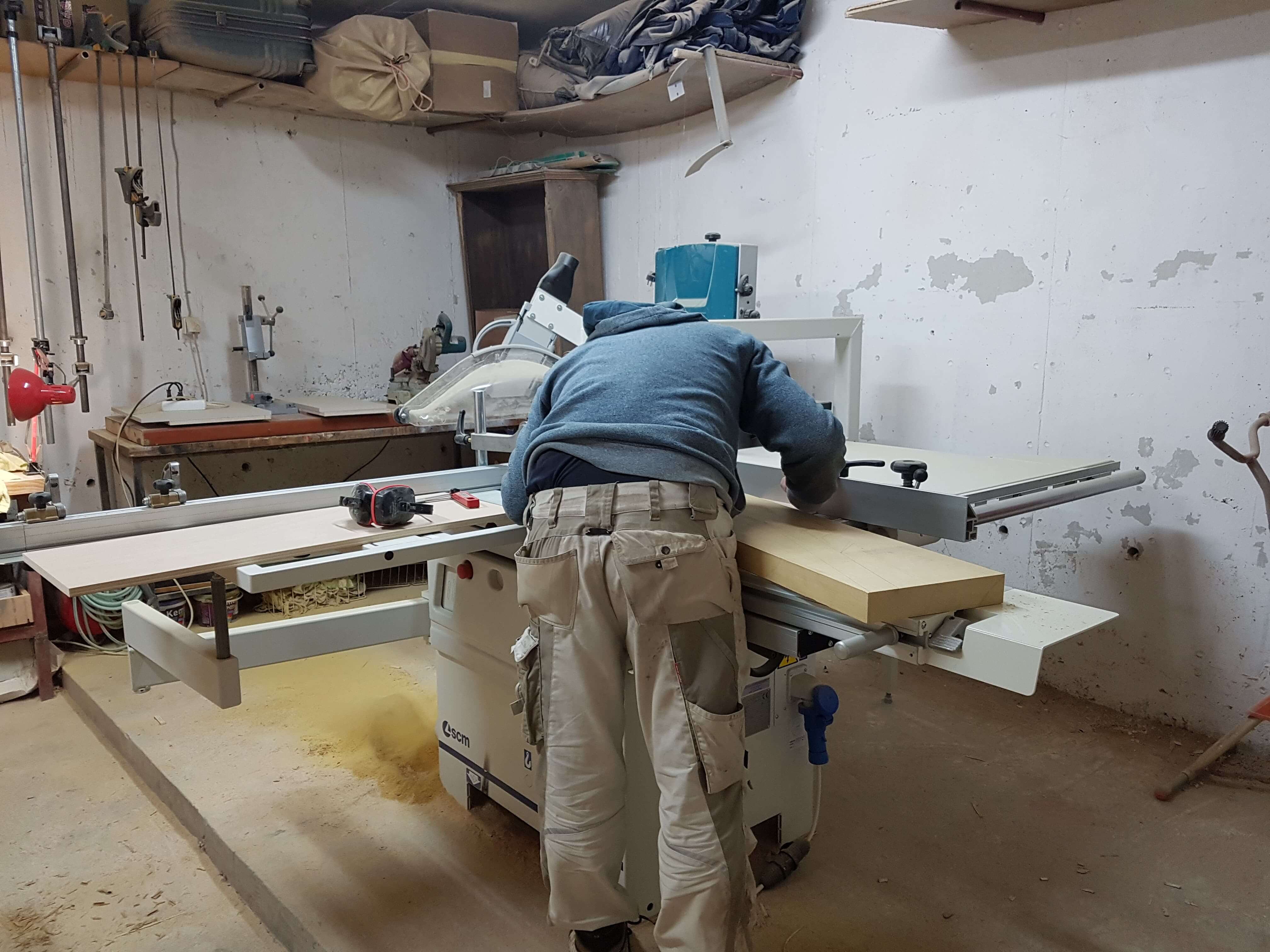
My husband keeping busy in his workshop
When did you realise that corona was going to be a big issue?
Like many, I think I honestly didn’t take it seriously until measures were announced to start closing borders and then came lockdown. It feels like it all happened so fast. Maybe it is a sign of our times that we are so desensitised to news but I feel that no one (or not many) comprehended and could have predicted the situation we are in. We’ve heard of the Spanish flu but this still feels unprecedented; not in my wildest dreams could I have imagined this, yet here we are.
What is your impression of the way Croatia is dealing with the crisis? How safe do you feel?
I am beyond impressed with how Croatia is handling this crisis. Honestly, I really didn’t expect such a response and I definitely didn’t expect people to take it so seriously. Yet, after the news was announced about being on lockdown, people were immediately off the streets where I live, the local playground was closed and covered, and social-distancing measures were put in place in the local supermarket, post office etc. While it all still feels a little eerie, I feel extremely safe living here in Croatia right now. Svaka čast Hrvatska!
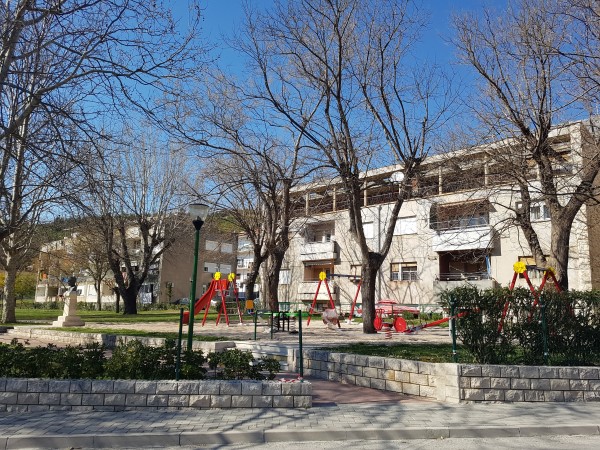
Our local park has been child-free since lockdown began
Now compare that to your home country and how they are handling it. What is Croatia doing better/worse?
I feel safe and happy to be living in Croatia; however, New Zealand is also handling it well. I think the Prime Minister, Jacinda Ardern, is one of the finest examples of leadership that we currently have in the world. Ardern’s communication is clear, concise and compassionate; they are also in lockdown, whereas their neighbour Australia is sending mixed messages and seems reluctant to take a strong stance one way or the other. I do have to boast, does anything really beat seeing the Prime Minister of a country doing live Q&A sessions on Facebook in comfy home clothes?
I can’t say that Croatia is handling things better or worse than New Zealand; I haven’t studied all communications and policies but from where I stand, both are doing an exceptional job at trying to flatten the curve, communicate clearly and take care of their citizens. I believe new economic measures are to be announced tomorrow in Croatia for ways the government plans on helping businesses. Considering a substantial chunk of Croatia’s GDP is reliant on tourism (around 20%), I am sure the Croatian government understands that it is in their best interest to protect their people and business owners; I am hoping for the best for all.
What about official communications from the authorities, compared to your home country?
Again, I think both countries are doing this well, there is clear information coming from both countries frequently and both seem to be using technology to their advantage – using all forms of media and social media to get their messages across. I watched TV for the first time yesterday and noticed that all of the ads are geared around staying inside and there is even a permanent watermark in the corner saying to stay home #ostanidoma. This blew me away. As a foreigner, I obviously can’t keep up with all of the Croatian news but thanks to TCN I feel informed. I also need to mention the articles by Igor Rudan which are some of the best articles I have read about Covid-19 and the situation we are in; these articles helped me comprehend the situation better – thank you Igor (and Lauren for translating)!
What's the one thing you wish you had taken with you into self-isolation?
Some resistance bands for training and a ukulele. The resistance bands explain themselves and I’ve always wanted to learn to play the ukulele. Mind you, writing and studying Croatian is keeping me busy enough, so it probably would have ended up on a shelf gathering dust like my guitar…
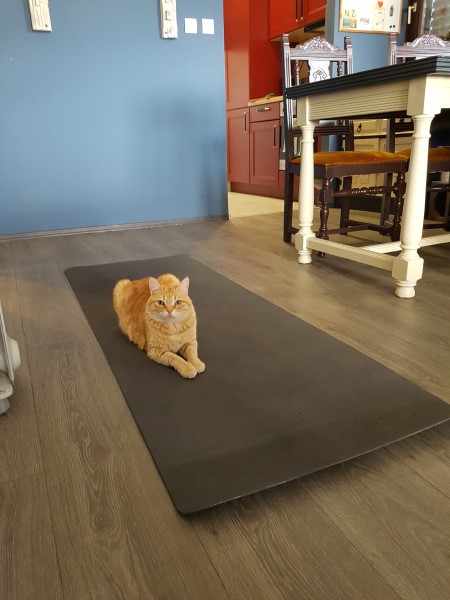
I'll settle for yoga with my fur babies.
One thing you have learned about yourself, and one thing you have learned about others during this crisis.
Big question, how long do you have? Seriously, I have learned a lot, this stillness is a great time to pause and reflect. I saw a post which read: “I feel like we’ve all just been put on the naughty step and been told to think about what we’ve done.” Which kinda sums it up; none of us would choose to be in this situation but now that we’re here, I believe we need to take the time to question our lives and values.
I have been doing a lot of digging into myself and questioning whether I am living out my values. While I feel ‘on track’ in a general sense, something that has come up for me is that I realised that I am still holding myself back in many ways. We all have that little voice that tries to keep us playing ‘small’ where it’s safe and I realised that I have been listening to it too often. One big positive that has come out of this for me is that I have glimpsed the absurdity of fear and self-doubt; considering everything can be taken away in the blink of an eye, protecting ourselves by playing small is ridiculous. And, considering everything going on in the world – does fear of what others think or self-doubt really have legs to stand on? For me, the answer is no.
What I have I learned about others during Crisis? I have learned that we all respond differently in crisis; it is even likely that we will flow between various stages during this period: disbelief, anger, frustration, helplessness, acceptance… In fact, it is very similar to the stages of grief. Perhaps it is a sort of grief we are experiencing, grieving over the world we have ‘lost’ and confused about how to begin again. This time will undoubtedly bring out the best and worst in people – I see initiatives to help community cropping up, just as I see actions of greed and selfishness (the whole toilet paper drama is a good example of this), I see kindness and support on social media, just as I see judgment and criticism. What stands out to me through all of this is that now more than ever, we need to practice compassion – compassion for ourselves and others. It is a strange time for all of us, so I am trying to be far kinder to myself and find compassion for others. If I see behaviour I don’t agree with, I have been reminding myself “maybe they aren’t their best right now, you don’t know what they’re struggling with” – ironically, isn’t this how we should always treat people?
This is what has been coming up for me, as you can see, with less stresses, my mind has switched to the philosophical element of it all.
Thanks, Tash, stay safe and see you on the other side.
TCN is starting a new feature series on foreign experiences of sitting out COVID-19 here in Croatia compared to their home country. If you would like to contribute, the questions are below. Please also include a para about yourself and where you are from, and a link to your website if you would like. Please also send 3-4 photos minimum to This email address is being protected from spambots. You need JavaScript enabled to view it. Subject Corona Foreigner
If you would be interested to record a video version for our partners www.rplus.video please let us know in the email. Thanks and stay safe.
Foreigners Self-Isolating in Croatia: Do You Feel Safer Than in Your Home Country?
Firstly, how are you? Are you alone/with someone? Tell us a little about your situation and sanity levels.
What do you think about the economic measures the government is taking, are they helping your business? (PLEASE IGNORE IF THIS DOES NOT AFFECT YOU)
When did you realise that corona was going to be a big issue?
What is your impression of the way Croatia is dealing with the crisis? How safe do you feel?
Now compare that to your home country and how they are handling it. What is Croatia doing better/worse?
What about official communications from the authorities, compared to your home country?
What's the one thing you wish you had taken with you into self-isolation.
One thing you have learned about yourself, and one thing you have learned about others during this crisis.
TCN has recently become a partner in Robert Tomic Zuber's new R+ video channel, initially telling stories about corona experiences. You can see the first TCN contribution from this morning, my video from Jelsa talking about the realities of running a news portal in the corona era below. If you would like to also submit a video interview, please find Robert's guidelines below
VIDEO RECORDING GUIDE
The video footage should be recorded so that the cell phone is turned horizontally (landscape mode).
There are several rules for television and video news:- length is not a virtue- a picture speaks more than a thousand words
In short, this would mean that your story should not last more than 90 seconds and that everything you say in the report should be shown by video (for example, if you talk about empty streets, we should see those empty streets, etc.).
How to do it with your cell phone? First, use a selfie camera to record yourself telling your story for about a minute and a half. Ideally, it would be taken in the exterior, except in situations where you are reporting on things in the interior (quarantine, hospital, self-isolation, etc.). Also, when shooting, move freely, make sure everything is not static.
After you have recorded your report, you should capture footage that will tell your story with a picture, such as an earlier example with empty streets.
One of the basic rules of TV journalism is that the story is told in the same way as a journalist with his text. Therefore, we ask you for additional effort. Because we work in a very specific situation, sometimes you may not be able to capture footage for each sentence of the report. In this case, record the details on the streets: people walking, the main features of the city where you live, inscriptions on the windows related to the virus, etc.
The same rules apply if you are shooting a story from your apartment, self-isolation, quarantine. We also need you to capture footage that describes your story.
When shooting frames to cover your reports, it is important that you change the angle of the shot (in other words, shoot that empty street from several angles). Also, when shooting a detail, count at least five seconds before removing the camera to another detail.
The material should be about 5 minutes long (90 seconds of your report + frames to cover your story).
After recording everything, send us to Zagreb, preferably via WeTransfer to This email address is being protected from spambots. You need JavaScript enabled to view it.
You can find more musings from Tash on her website or Instagram.
Croatian Companies Who Lay Off Staff Can Access Government Support
The Croatian Employers' Association's request is set to be granted by the Croatian Government early next week, and now even Croatian companies who have been forced to lay off staff during the ongoing and unprecedented coronavirus crisis will be allowed to access support from the government.
As Novac writes on the 5th of April, 2020, the Croatian Employers' Association (HUP) welcomes the announcement from the Ministry of Labour that at the CES Governing Council session on Monday, their request for all Croatian companies who were forced to lay off workers and/or close their companies to be able to access support will be granted.
The ability to seek financial support from the various economic measures recently presened by the government will be given to all Croatian companies who were forced to lay off workers and close down their operations before the entry into force of the measures passed by the Government of the Republic of Croatia in the face of the coronavirus crisis.
Last week, the Croatian Employers' Association addressed three ministries requesting that the second package of government measures, in the part related to job support grants, be made available to all small and micro enterprises who laid off workers because they didn't see any prospect for that in the first package of announced measures. Small and micro-enterprises, as the HUP has repeatedly emphasised, should then have been required to write off all payments, as mere delays were not sufficient to preserve jobs.
''As soon as the second package of measures was announced, the HUP requested understanding from the Croatian Government towards all micro and small enterprises, which were forced to lay off their workers due to discontinued operations or great difficulties. We're pleased that this move means returning workers to their jobs, restarting businesses and believing that this crisis can be overcome more quickly. This crisis teaches us how important it is to preserve our own production, develop and invest in our own knowledge and our own resources,'' stated Davor Majetić, CEO of the Croatian Employers' Association.
More detailed information on the use of government grants is expected early in the coming week following the end of the aforementioned session due to take place on Monday.
Follow our dedicated section for more on coronavirus in Croatia.
Corona Voices in the Croatian Diaspora: Emanuela in Vietnam
April 5, 2020 - With as many Croatians living abroad as in the Homeland, what are the diaspora experiences of self-isolation? In the first of a new series, Corona Voices in the Croatian Diaspora, Emanuela Peric on the current realities in Vietnam.
Last week TCN started a feature series called Foreigner Self-Isolation In Croatia: Do You Feel Safer? I can honestly say we have never had such a response or so many incredible contributions. The countries of origin of these expats in Croatia literally from all over the world. So far we have had submissions from expats from Romania, USA, Ireland, UK, Mexico, Argentina, Spain, Singapore, Holland, Canada, India, Hong Kong, Venezuela, Latvia, China, Honduras, Hungary, Moldova and Germany. You can see all their stories here.
Given the success of the series (still going strong) and large interest, it made sense to expand it to look at this from another angle - how Croatians abroad are coping where they are. If you would like to contribute your story to Corona Voices in the Croatian Diaspora, please find the submission guidelines below.
I contacted some of my favourite people in the diaspora to get the series started. And what better way to start than on an idyllic beach in Vietnam, with one of the craziest Croats I know - Emanuela Peric from the island of Rab.
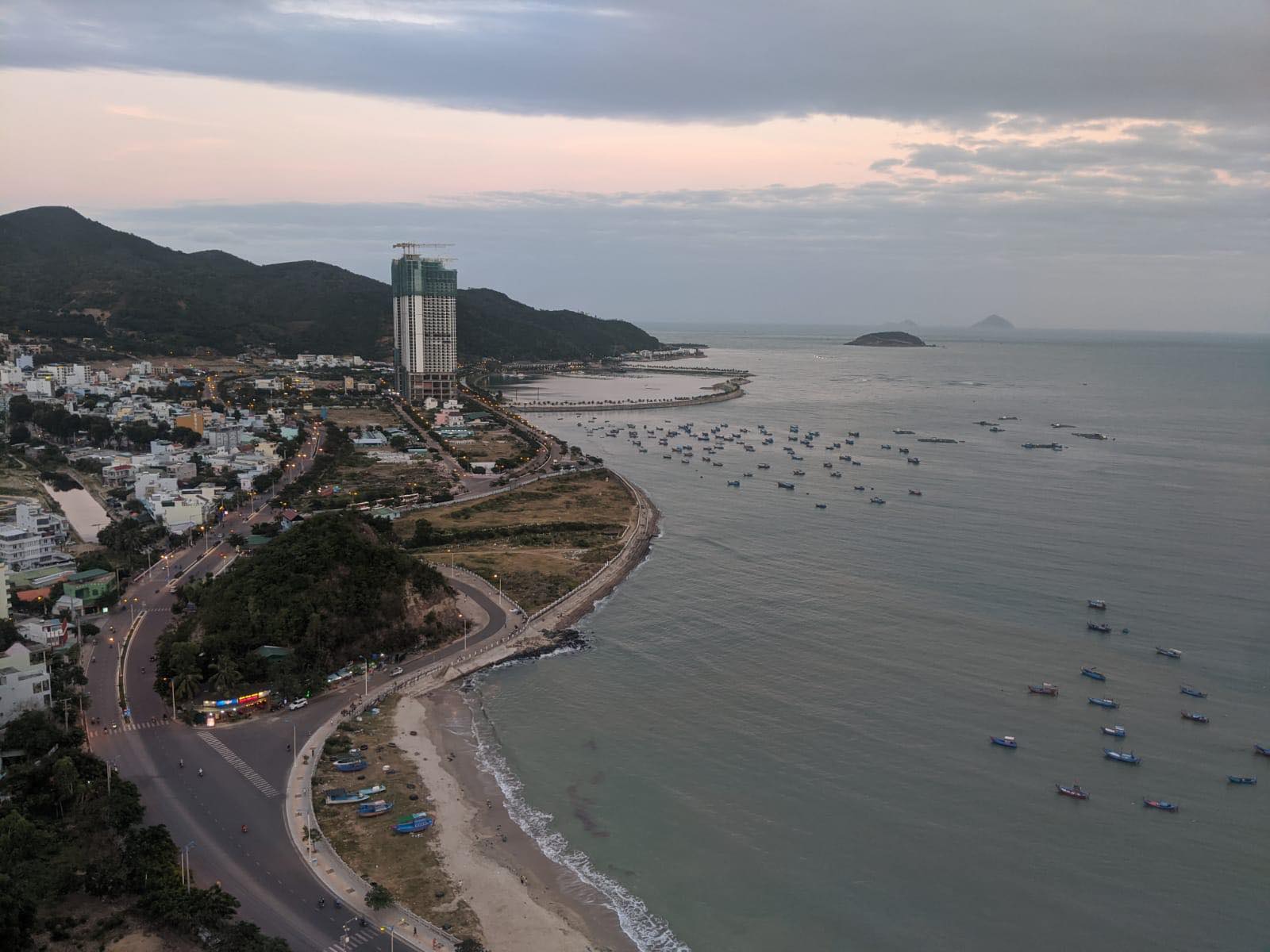
Firstly, how are you? Are you alone/with someone? Tell us a little about your situation and sanity levels.
Xin Ciao from Nha Trang, a coastal city on the South Central Coast of Vietnam. I am currently living in a beautiful villa with four others. I am using the word “villa” here as a reminder to myself not to complain!
My roommates are my colleagues and my boss who always finds ways to keep me busy. Some I have known for years now and that gives me a “safe” feeling – it really helps with the sanity part.
Our project has been currently suspended, as have many others, and we are now focused on what to do in lockdown and we can’t (and really don’t want to) go home (Croatia, Germany, Philippines nationalities in this little self-isolation unit).
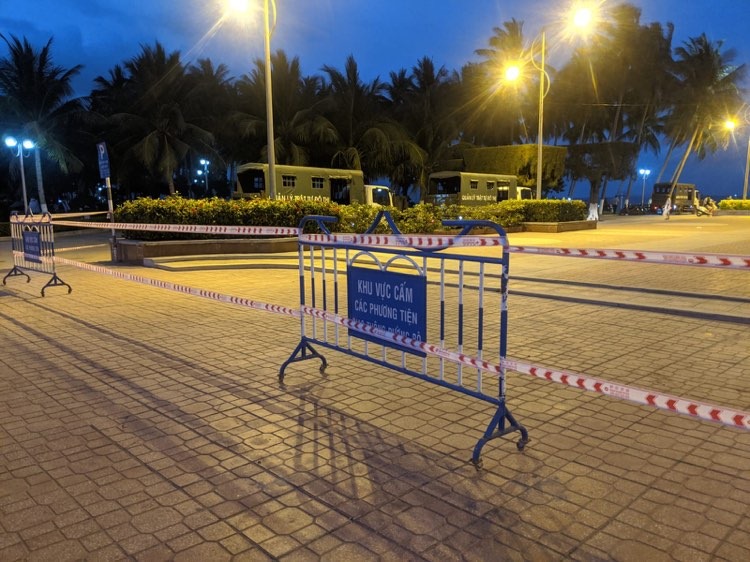
When did you realize that corona was going to be a big issue?
After spending a few months in Europe, I came back to Vietnam on 6th of February just when it was all starting, and at that time I was sure China would contain it and the worst-case scenario would be sightseeing without Chinese guests (that didn’t sound so bad to me). But then Italy happened and each morning I woke up to a different situation in Europe, realizing more and more what’s happening and getting used to words like self-isolation, quarantine, lockdown, curfew …
I’m strolling down this beautiful beach and all of a sudden it’s like a bad movie – pandemic, deaths in Italy and then an earthquake in Zagreb!
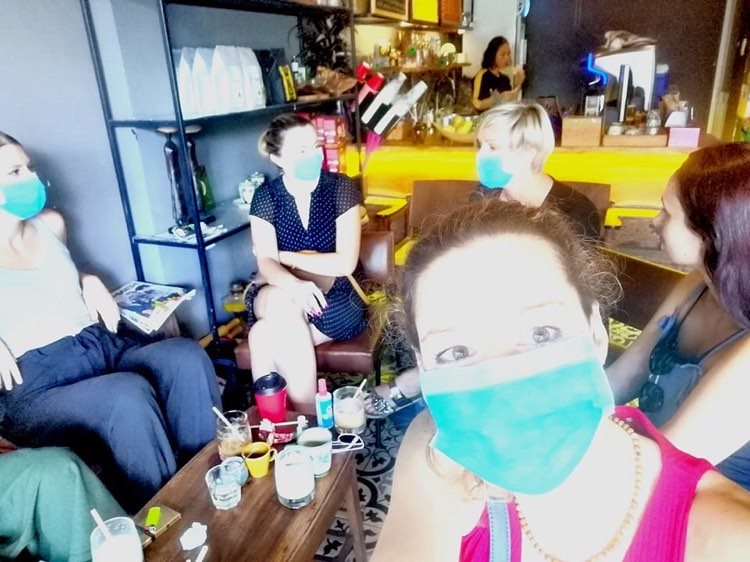
When did you realize that corona was going to be a big issue in Nha Trang in particular?
Nha Trang and the entire Khánh Hòa Province (officially) had only one case from February 2. Life was in a way normal here until April 1 when the national lockdown started.
There were no guests, hotels and restaurants were closing down, which mostly focused on the Chinese market which is the majority in my city. We still spend days on the beach, going for dinner, drinks. It was like wintertime in Croatia only no winter and we can afford to eat and drink outside.
Give us a timeline on when and how life changed.
The Vietnamese government closed the borders with infected countries, one by one and we had only 25 cases. Then and now I still believe this is one of the safest places on Earth, from COVID-19.
At the begging of March, locals who were traveling in Europe started coming back home and bringing unwanted souvenirs. Again something from the West bothering Vietnam. With a low number of cases they announced a nationwide lockdown for the entire month of April, not taking any risks. Meaning no gathering, beaches are closed, food stores still work and food delivery.
People started washing their hands and respecting personal space – not complaining about that!
Life was cheap here, and now it's even cheaper. Prices are going down like crazy, but of course so is the unemployment rate.
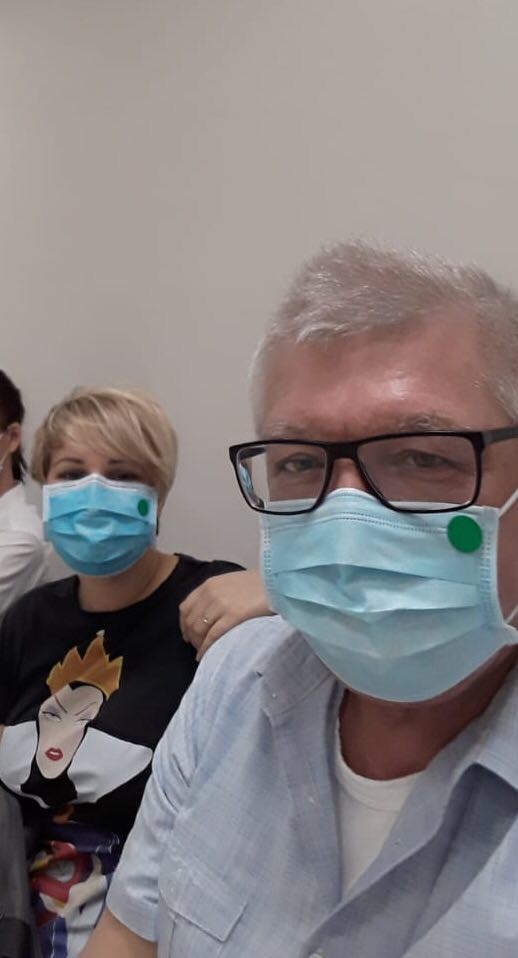
Tell us about your day. Do you/can you leave your apartment?
Hello, it’s a villa! And yes, I can go out, have a walk, do some jogging, go to a local store.
I’m trying to maintain a routine, treat working days as that and weekends for drinking, and sleeping longer.
With the internet there are so many things to keep you busy and there are also house chores. Then you have Netflix. It’s time to learn yoga and finish that Russian course. All those books I got for my Kindle will have their turn. Finally I have time to edit all those GoPro videos, and I’m learning how to play chess.
I have been promoted to Executive Laundry Manager of our little house. One bin for white, one for black and one for color!.
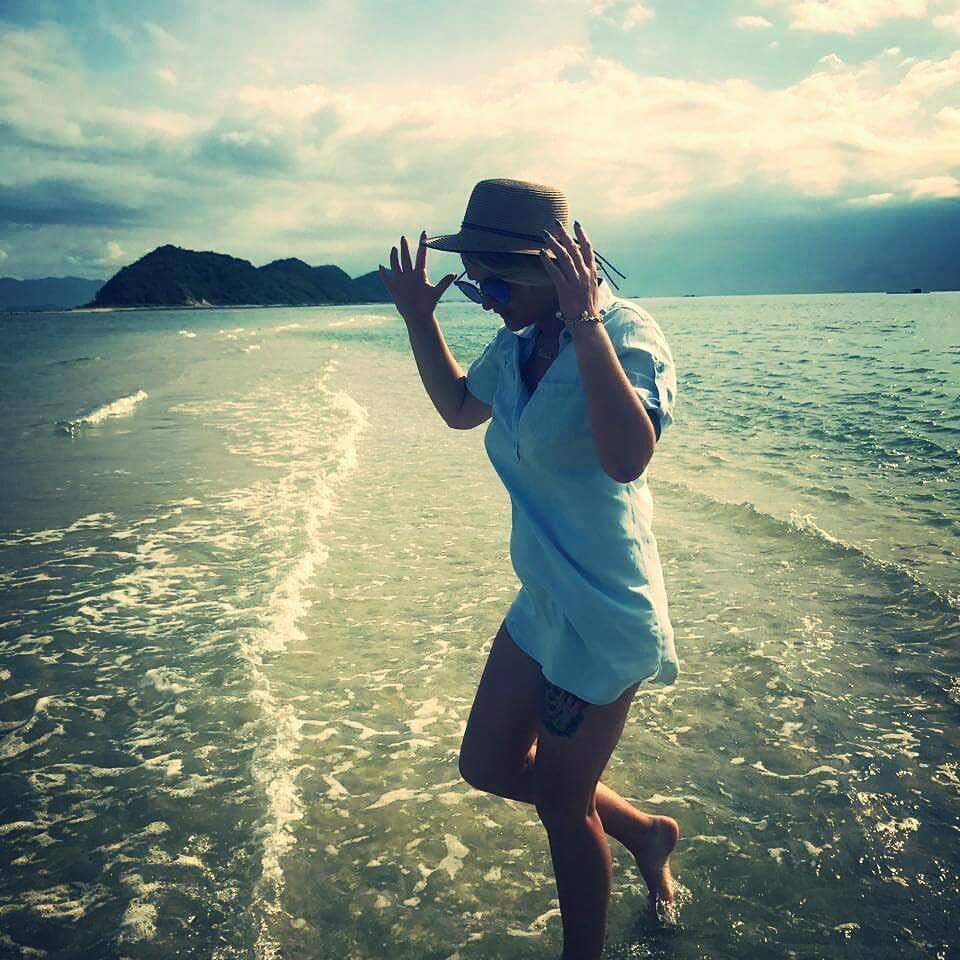
How are the authorities doing at handling the situation?
This is a Communist state – I think that speaks for itself... There is no joking around and they don’t say something twice, particularly if you are a foreigner. I’m not playing western music too loud lately...
All jokes aside, Vietnam is doing well controlling the COVID-19 pandemic. There are 239 confirmed cases as I’m writing this, in a country of 96 million.
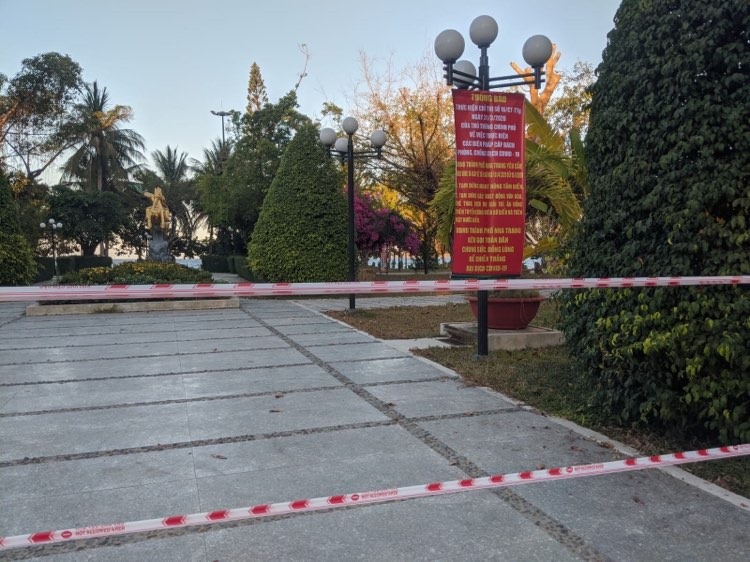
You obviously keep an eye on your homeland. What is your impression of the way Croatia is dealing with the crisis?
What should I say about this that will not make my blood pressure jump?
COVID–19 is not the problem, UHLJEBI are the problem. We got the middle finger from our embassy in Malaysia while other countries are localizing their citizens around the world, evacuating them, making them feel like there is someone thinking of them.
The crisis is yet to come, hopefully a big change too.
Compare and contrast the responses of Croatia and Vietnam. Who is doing what better?
Difficult to compare, it’s easier to close borders here and I’m not fully familiar with all the economic measures Vietnam is doing to help the locals but I’m sure there is a lot less paperwork involved.
The good thing for both countries is that they reacted quickly, but the Croatians still seem a bit unaware that they need to stay inside.
What about official communications from the authorities, compared to your home country?
Expat community here has clear information and the locals as well. We all know what we can and cannot do. We get SMS daily with reminders to stay at home and to wash our hands. As back home, there is a van with speaker driving around and reminding people to go home. Police is everywhere, making sure you don’t brake social distancing rules.
If there is a difference to mention then is that of Face Masks, Vietnamese and most South East Asians wore them religiously before so of course more so now.
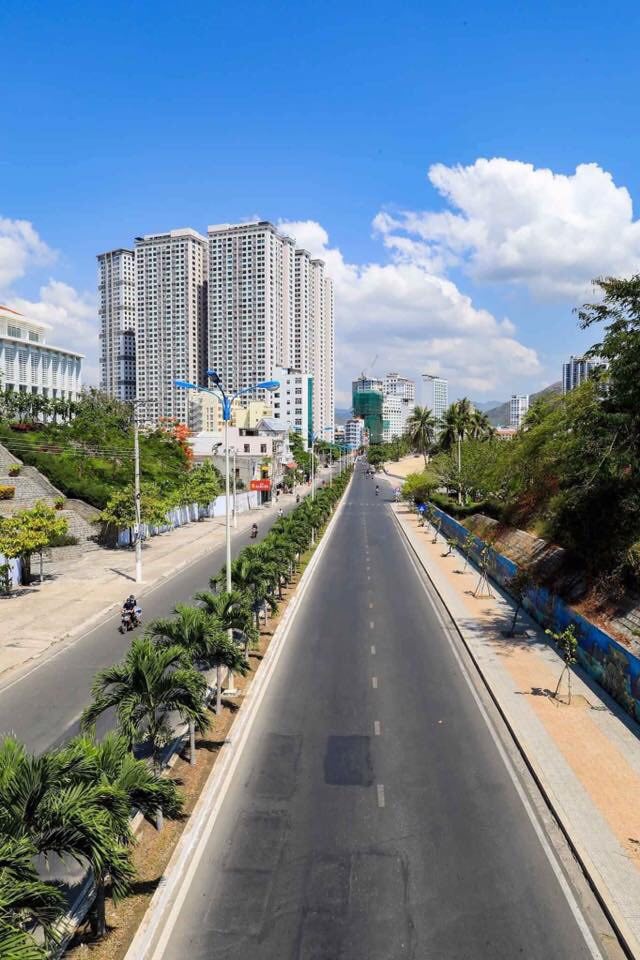
What's the one thing you wish you had taken with you into self-isolation?
Hahaha.. I would have gotten myself a boyfriend, weed and more alcohol!
One thing you have learned about yourself, and one thing you have learned about others during this crisis.
I do panic sometimes and I too get scared.
Those who didn’t have time for a video call before COVID-19 don’t have time now as well.
And I’m super interested in what is going to happen to our Uhljeb’s!
If you could be self-isolating in Croatia, where would it be, and why?
You mean spend another winter on a Croatian island ??
I don’t want to be in Croatia, isolation or not! Unless we are throwing Molotov cocktails at St. Mark’s Square!
Thanks Emanuela, nice to see some places are safe and life still almost a little normal. Stay safe and maybe I will join you on St. Mark's Square when the time is right...
TCN is starting a new feature series on Croatian diaspora experiences of sitting out COVID-19 abroad and comparing your experiences to the situation in Croatia. If you would like to contribute, the questions are below. Please also include a para about yourself and where you are from, and a link to your website if you would like. Please also send 3-4 photos minimum to This email address is being protected from spambots. You need JavaScript enabled to view it. Subject Corona Diaspora
If you would be interested to record a video version for our partners www.rplus.video please let us know in the email. Thanks and stay safe.
Self-Isolation Voices from the Diaspora
Firstly, how are you? Are you alone/with someone? Tell us a little about your situation and sanity levels.
When did you realise that corona was going to be a big issue?
When did you realise that corona was going to be a big issue in New York in particular?
Give us a timeline on when and how life changed.
Tell us about your day. Do you/can you leave your apartment?
How are the authorities doing at handling the situation?
You obviously keep an eye on your homeland. What is your impression of the way Croatia is dealing with the crisis?
Compare and contrast the responses of Croatia and USA. Who is doing what better?
What about official communications from the authorities, compared to your home country?
What's the one thing you wish you had taken with you into self-isolation?
One thing you have learned about yourself, and one thing you have learned about others during this crisis.
If you could be self-isolating in Croatia, where would it be, and why?
TCN has recently become a partner in Robert Tomic Zuber's new R+ video channel, initially telling stories about corona experiences. You can see the first TCN contribution from this morning, my video from Jelsa talking about the realities of running a news portal in the corona era below. If you would like to also submit a video interview, please find Robert's guidelines below
VIDEO RECORDING GUIDE
The video footage should be recorded so that the cell phone is turned horizontally (landscape mode).
There are several rules for television and video news:- length is not a virtue- a picture speaks more than a thousand words
In short, this would mean that your story should not last more than 90 seconds and that everything you say in the report should be shown by video (for example, if you talk about empty streets, we should see those empty streets, etc.).
How to do it with your cell phone? First, use a selfie camera to record yourself telling your story for about a minute and a half. Ideally, it would be taken in the exterior, except in situations where you are reporting on things in the interior (quarantine, hospital, self-isolation, etc.). Also, when shooting, move freely, make sure everything is not static.
After you have recorded your report, you should capture footage that will tell your story with a picture, such as an earlier example with empty streets.
One of the basic rules of TV journalism is that the story is told in the same way as a journalist with his text. Therefore, we ask you for additional effort. Because we work in a very specific situation, sometimes you may not be able to capture footage for each sentence of the report. In this case, record the details on the streets: people walking, the main features of the city where you live, inscriptions on the windows related to the virus, etc.
The same rules apply if you are shooting a story from your apartment, self-isolation, quarantine. We also need you to capture footage that describes your story.
When shooting frames to cover your reports, it is important that you change the angle of the shot (in other words, shoot that empty street from several angles). Also, when shooting a detail, count at least five seconds before removing the camera to another detail.
The material should be about 5 minutes long (90 seconds of your report + frames to cover your story).
After recording everything, send us to Zagreb, preferably via WeTransfer to This email address is being protected from spambots. You need JavaScript enabled to view it.
Digital Nomad Life in Croatia: Mike and Tara Shubbuck from Washington DC to Zagreb
April 5, 2020- As the number of digital nomads rises globally, some are choosing to spend some of their time in Croatia. Continuing our TCN series meeting international digital nomads calling Croatia their temporary home. Meet Mike and Tara Shubbuck from Washingon DC but now in Zagreb.
As recently featured on TCN, the world is projected to have a billion digital nomads by 2035, people from all over the world doing all manner of jobs and business with one thing in common - a flexible, mobile workplace connected to the Internet. If even a fracture of that number becomes a reality, the economic opportunity for countries which can attract these wealth-generating individuals has the potential to dwarf Croatia's current tourism revenues. And there are few countries better placed than Croatia to take advantage. Safe, beautiful, great gourmet scene, top tourist destination, English is widely spoken, well connected to other destinations, and a superb lifestyle.
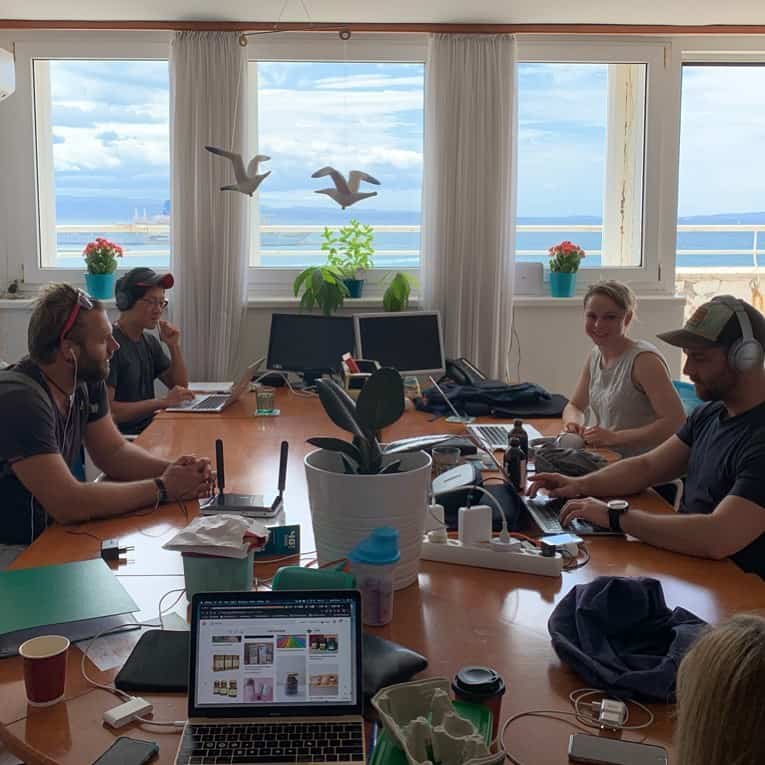
In order to look at the issue in more detail, we have decided to look at some of the digital nomads who have Croatia in their lifestyle plan, and to find out why Croatia, what Croatia offers, and what are the things that countries should be looking out for to take advantage of this economic opportunity. I am very grateful to Tanja Polegubic from Split's waterfront co-working space, Saltwater in Split (see location below) for her help in connecting me to various digital nomads using her space.
Our next digital nomads in Croatia are Tara Shubbuck and partner Mike, currently in Zagreb, a long way from home in Washingon DC.
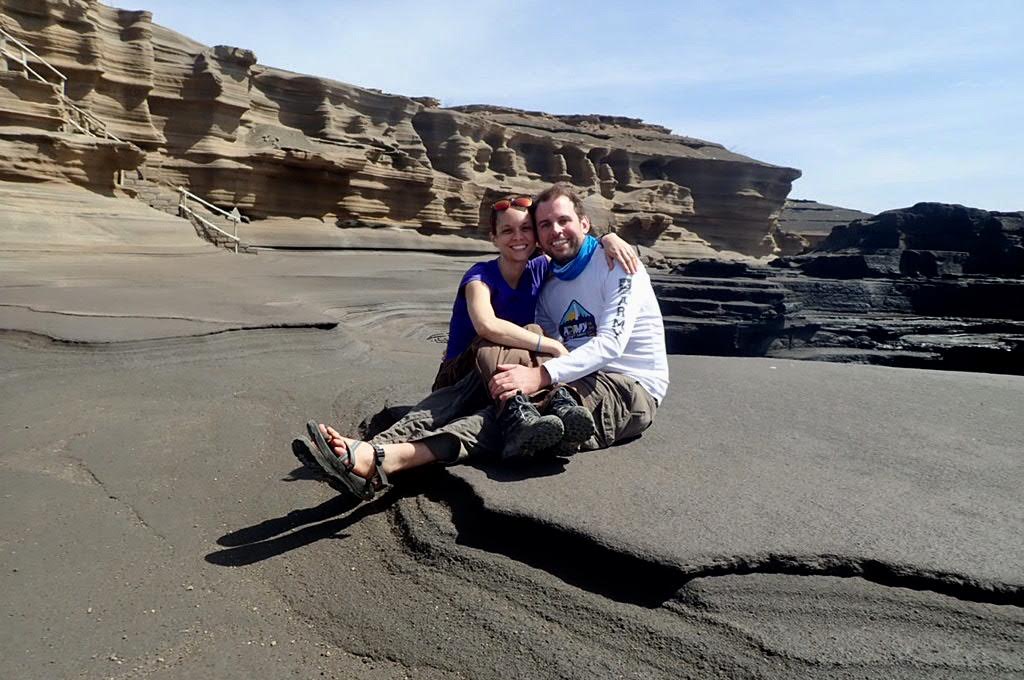
You are one of a growing number of digital nomads. Tell us briefly who you are and what you do.
We’re Tara and Mike, a married couple in our thirties from Washington, DC. At the end of 2019, we split off from our location-dependent jobs to pursue a fully remote lifestyle. Over the past four years, Tara created a side business doing writing work mostly for Skyscanner and The Washington Post (https://tarashubbuck.com). Once the frequency of projects reached a sustainable level, we decided that 2019 was the right time to start that transition to become digital nomads. We ended 2019 with Tara leaving her full-time marketing job to focus on her freelance work, while Mike transitioned to being a fully remote technical writer and trainer.
Working from your laptop rather than in an office seems like the dream lifestyle. What are the main pros and cons?
We’re still new to the digital nomad lifestyle, but one thing that has been really nice is living in a time zone ahead of those we work with. We’re more night owls than early birds, so we tend to stay up later anyway. This frees up the morning for personal activities, and then by lunchtime, those we work with are starting to sign online for the day.
Another major perk of this lifestyle (prior to the coronavirus pandemic lockdown!) is that you are, in a way, always on vacation. You can move whenever you want a change of scenery, and what you pay for housing, food, etc. are your standard costs of living, not additional expenses like those you would incur when you take a vacation away from your permanent residence. And because of that, we can select destinations that have a lower cost of living compared to the United States, and particularly DC, where rent and activities are expensive.
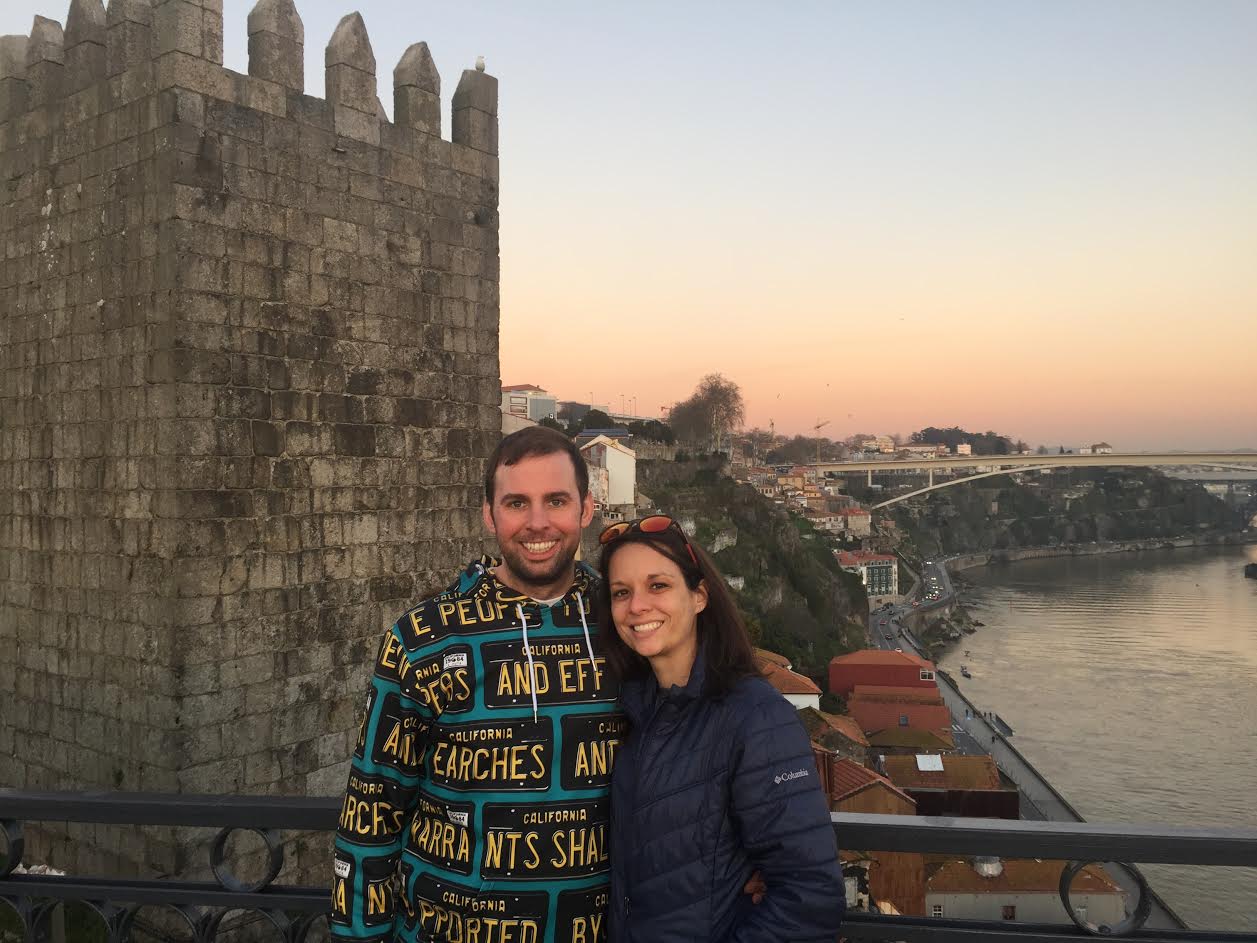
As far as cons go, both of us are social people, so not being surrounded by friendly coworkers all day is a bit of a negative. We had become really good friends with some of our former coworkers, so reduced socializing has definitely been difficult for us. We arrived in Croatia just days before the country closed its borders to foreigners and then shut down essential businesses due to the pandemic, so we haven’t had the opportunity to meet locals or other expats here. We’ve been doing regular happy hour video chats with friends and family, so that’s filled the void a little.
The lack of job security that comes with freelancing is also a con. Due to the current pandemic and the economic upheaval it’s caused, Tara’s work has been drastically reduced. Her assignment load has fluctuated over the years, so we already knew how volatile this line of work could be. It’s something we’ve prepared for, and anyone thinking of becoming a digital nomad should do the same. Creating a safety net for yourself is not optional. We wrote a lot about budgeting and saving for long-term travel in a book that we self-published a few years ago called Create Your Escape: A Practical Guide for Planning Long-Term Travel (more at http://createyourescape.today/).
Laptop living gives you the freedom to travel and choose your place to live. Where are the global hot spots currently for digital nomads?
If you put the pandemic aside, our plan for this remote work lifestyle was not necessarily to travel to cities that are set up perfectly for digital nomads. When we set our minds to being location independent, we had a strong desire to live in cities we had visited before and fell in love with, like Zagreb.
From 2012-2013, we took a career break and traveled the world (blogging about it at https://twotravelaholics.com). Along the way, we noted which cities we could see ourselves living in and promised each other we’d return. So that’s what we started out doing, first in Portugal and now Croatia. Others that we’d like to return to include Amsterdam, Singapore, Bangkok, Ho Chi Minh City, Cape Town, and Vancouver. When the pandemic subsides and it becomes possible to travel freely again, we want to explore more of Eastern Europe (and Croatia, if we’ll have the opportunity for intercity travel before our tourist visa expires).
You chose Croatia and specifically Zagreb - why?
As mentioned, it’s one of the locations we fell in love with years ago. The people are friendly, there are many opportunities for outdoor activities, there are rich culture and historic sites, and you really can’t beat the food, beer and wine. We lived for the craft beer scene in the US, and while it’s different abroad, we haven’t had a Croatian beer that we didn’t like (we were introduced to Medvedgrad nearly a decade ago and still love its brews).
What are the most important things a destination should offer to be most compatible for the digital nomad lifestyle, apart from that all-important good WiFi?
The answer is going to change from person to person. We don’t want to put ourselves at risk, so safety and comfort are top priorities. After that, we gravitate toward larger cities. We love city life, being able to attend events, go to concerts, explore museums, and get lost in the winding streets of unfamiliar neighborhoods. Great cuisine and local beer and wine are important, too, of course.
We’ve been in coworking spaces in DC, but we haven’t had the opportunity to try them abroad yet. The concept certainly appeals to the digital nomad lifestyle. There’s the intermingling of businesses, work equipment, social interaction, and, of course, just the ability to work in an atmosphere where you can be productive that is outside of a café or where you are currently living.
What are the competitive advantages that Croatia has to attract more digital nomads?
Three things that make Croatia a very attractive destination for digital nomads are safety, affordability, and the fact that many locals speak English. We always want to learn as much of the local language as we can whenever we travel, but you’re only going to be so proficient even after a few months of trying your best.
One thing that destinations can supply that would attract digital nomads and make their transition easier is a centralized website that houses relevant resources like apartment rentals, coworking space information, an events calendar, and instructions for a visa extension. All this information is scattered across the web—some sites in the local language and others with an English option—so the more hurdles you introduce, the more likely you are to lose potential visitors. Digital nomads are going to be spending a lot of time and money in your city—not to mention posting about it on social media—so making an investment in attracting them should pay off pretty quickly.
Connect with Tara and Mike! They’d love to chat with other TCN readers (https://www.linkedin.com/in/mikeshubbuck/ and https://www.linkedin.com/in/tarashubbuck/).
To learn more about Croatia for the digital nomad, check out the Total Croatia Digital Nomad guide.
Are you a digital nomad in Croatia who would like to be featured in this series? Please contact us on This email address is being protected from spambots. You need JavaScript enabled to view it. Subject Nomad
Osijek Prepares Package of Economic Measures Worth HRK 18 Million
As Nikola Patkovic/Novac writes on the 3rd of April, 2020, in order to counteract the negative economic consequences of the ongoing coronavirus crisis, the City of Osijek has prepared a package of economic measures to assist Osijek's entrepreneurs who are facing business troubles because of this unprecedented and rapidly changing situation. The package is worth a massive HRK 18 million, and will be decided on by the Osijek City Council at a virtual session scheduled for Tuesday, April the 7th, 2020
''Over recent weeks, as the new situation caused by the COVID-19 pandemic has continued to unfold, all of our efforts have been focused, first and foremost, on the protection of the health of our fellow citizens, and in these efforts, the City of Osijek has partnered with both the local and the national authorities. Aware of the consequences that the crisis will have on the economy, we're giving equally important attention to the protection and preservation of every job in the City of Osijek. We don't know how long this crisis will last, but it's clear that we all have to adapt to this new situation,'' said Žana Gamoš, Osijek's Deputy Mayor, announcing the economic measures they have prepared.
Thus, they have decided that through a public call, a massive HRK 5.5 million will be directed towards small and medium-sized enterprises, as their businesses are at risk in this crisis. An entrepreneur based in Osijek who has proven that the coronavirus crisis has adversely affected his business and signed a grant agreement with the CES (Croatian Employment Service) may participate in the City of Osijek's public invitation. The city will pay the entrepreneur a one-time and non-refundable payment of HRK 1,000 per employee. The state is helping employees directly, and this Eastern Croatian city has decided to disburse funds to help with the maintainance of liquidity.
''By supplementing the Decision on communal compensation and the proposal of a Decision on the exemption from communal fee payment during these extraordinary circumstances caused by the COVID-19 virus, the City of Osijek proposes to completely exempt OPGs, craftsmen, legal entities and persons engaged in an independent activity for premises and construction land used for business purposes from needing to pay communal fees for the months of April, May and June,'' Gamoš reported.
In addition, no compulsory collection of debts will be enforced during these exceptional circumstances. The tenants of the public areas and business premises belonging to the City of Osijek have been exempted from making those payments for the month of April with the possibility of an extension depending on the duration of the unfolding situation. In addition, parents in Osijek will not have to pay for the use of kindergartens and extended stays in schools.
For more on business in Croatia, follow our page. For information on coronavirus in Croatia, follow our dedicated section.
VIDEO: SPAR Cooperating With Sixty Small Croatian Producers
With imports and exports affected by the ongoing coronavirus pandemic, the argument for self-sufficiency has never been stronger. Owing to that, Konzum announced that it would cooperate with Croatian producers who usually sell their produce on now closed markets, and allow them to continue selling those products on the popular store's shelves. SPAR, another popular store in Croatia, has done the same.
As Poslovni Dnevnik writes on the 4th of April, 2020, SPAR has so far cooperated with sixty new Croatian producers in the field of agriculture, as well as local farmers who are no longer able to sell their products on the market because of the measures put into place in Croatia to help prevent the spread of COVID-19.
''In the first few days we bought salads, packaged tomatoes, leeks, chard, parsley, spinach and more from small producers and OPGs and secured their placement on the shelves of SPAR and INTERSPAR stores.
Through the Osatina distributor, we're also buying young onions from OPG Ivan Mrašić, OPG Špiranec Mladen, OPG Rasinec Ana, OPG Vedriš Ivica and OPG Veličan Damir. In addition, some products will be sold under our brand Gardens of Croatia (Vrtovi Hrvatske), such as Balog OPG beans, OPG Vesna Bašić apples, OPG Raos-Vrgorac garlic, and cauliflower and broccoli from the company Tlzit.
With this move, we're expanding our cooperation with a large number of our existing Croatian producers. We'd like to emphasise that a large number of them are operating under the Gardens of Croatia brand. We're proud that SPAR supermarkets and INTERSPAR hypermarkets are the stores with the most Croatian products in them,'' a statement from SPAR read.
If you understand Croatia, check out the SPAR YouTube channel for more information on buying fruit and vegetables from Croatian producers:
For more on coronavirus in Croatia, as well as lengthy scientific texts from eminent Croatian scientist Igor Rudan, make sure to follow our dedicated section.
Erste Bank and Erste Card Club Donate 1.3 Million Kuna to Zagreb Hospitals
Following donations from INA and many other companies who are determined to make sure Croatian hospitals get the equipment they need, more generous donations to Zagreb hospitals have been made in the united fight against the coronavirus pandemic.
The coronavirus pandemic is wreaking havoc with the global economy, not to mention public health. In Croatia, the effects of the outbreak on the economy have been dire and the outlooks continue to look bleak, but when it comes to the health system, the measures put into place to protect lives by the Civil Protection Headquarters have been second to none.
That being said, respirators and other equipment are desperately needed for those who are suffering more seriously from coronavirus, and more and more companies are stepping up in this time of great need.
As Poslovni Dnevnik writes on the 4th of April, 2020, Erste Bank has decided to donate a generous sum to to the now very well known ''Dr. Fran Mihaljevic'' Clinic for Infectious Diseases in Zagreb in the amount of one million kuna, with the aim of assisting with the procurement of the necessary medical equipment in the current tense situation where enormous efforts are being made to curb the spread of coronavirus.
In addition, the Erste Card Club decided to donate a massive 300,000 kuna to the Children's Diseases Clinic in Klaiceva street, to help repair the material damage caused by the devastating earthquake that struck Zagreb recently, of which Zagreb hospitals were also a victim.
''The seriousness and complexity of the situation we're currently in requires a responsible reaction from all subjects in the community. In this way, we want to contribute to the efforts to overcome the challenges that lie ahead of us all, and at the same time support physicians and nurses, whose role in the current circumstances is extremely important and deserves great respect,'' said Christoph Schoefboeck, Erste CEO banks on this occasion.
Make sure to follow our dedicated section for information and updates on coronavirus in Croatia, as well as scientific texts by eminent Croatian scientist Igor Rudan.
148 Croatian Nationals Repatriated by Air from Italy, Portugal, Spain and Sweden
ZAGREB, April 5, 2020 - A total of 148 Croatian nationals were flown back to the homeland from several European countries on Saturday, the Croatian Foreign and European Affairs Ministry said in a press release on late Saturday evening.
A total of 155 passengers consisting of the 148 Croatians and a few citizens of Slovenia, Bosnia and Herzegovina, and Montenegro, arrived in Zagreb on Saturday evening aboard special Croatia Airlines flights from Portugal, Spain, Italy and Sweden where they were stuck during the outbreak of the coronavirus infection.
Upon their arrival at Franjo Tudjman Airport, the passengers were examined by infectiologists.
All those 148 citizens are required to self-isolate in the next 14 days.
On Sunday, 37 Croatian nationals will arrive by ship from Ancona to Zadar. The Croatian government said on Friday it had ensured the repatriation of Croatian nationals from Ancona by catamaran and departure from the Italian seaport is planned at 3 p.m. on Sunday.
The Jelena vessel is expected to arrive in Zadar at 6.30 p.m. that day.
Also, a group of Croatians, who are still in the Austrian region of Tyrol which is on lockdown, will be transported back to Croatia on buses.
Minister Gordan Grlić Radman said on Saturday that it was the government's obligation under the constitution to ensure repatriation of Croatian nationals.
He said on Saturday morning that a total of 893 Croatians had been repatriated since the outbreak of the coronavirus epidemic and several hundred were due to return this weekend,
More coronavirus news can be found in the Lifestyle section.

